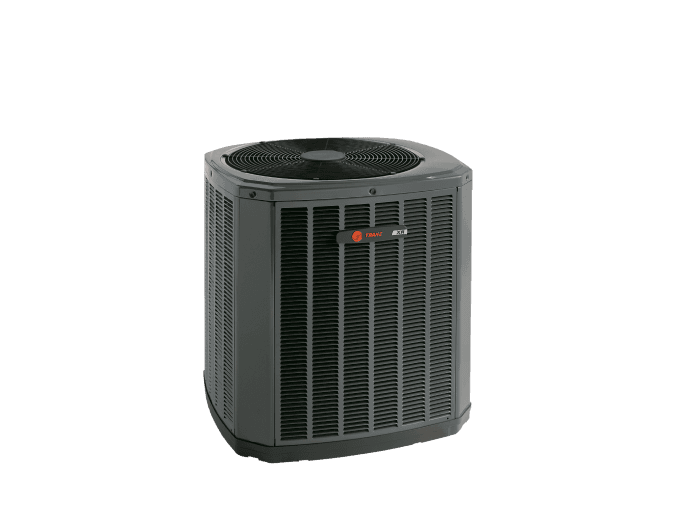Boost efficiency and lower emissions
with an electric heat pump.
Learn how Trane’s electric HVAC systems can deliver a cleaner, healthier and greener heating and cooling experience.
What is electric heat and why is it a good choice?
Electric central heating systems use electricity to produce and circulate heat throughout your home instead of relying on natural gas. That means, when you choose an electric heating option, like a heat pump or hybrid system, you’re reducing the amount of greenhouse gas emissions coming from your home.
How does electric heat work?
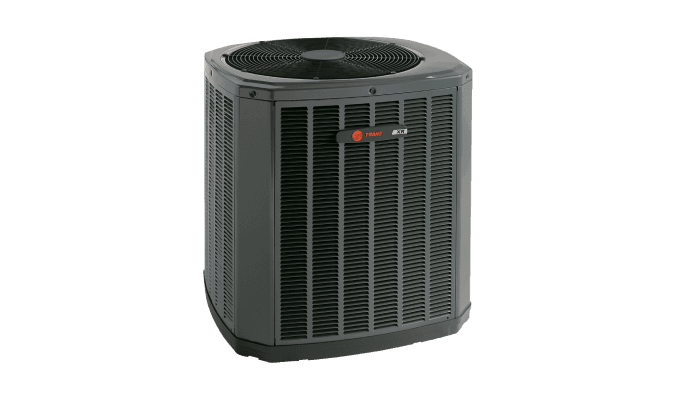
Electric Heat Pumps
Trane’s electric heat pumps extract heat from the air outside and deposit it into your home in order to heat it during the winter. In the summer, heat pumps reverse the flow of refrigerant and remove hot air from your home to leave it feeling cool. In most cases, a heat pump is paired with an air handler that circulates the newly cooled or warmed air.
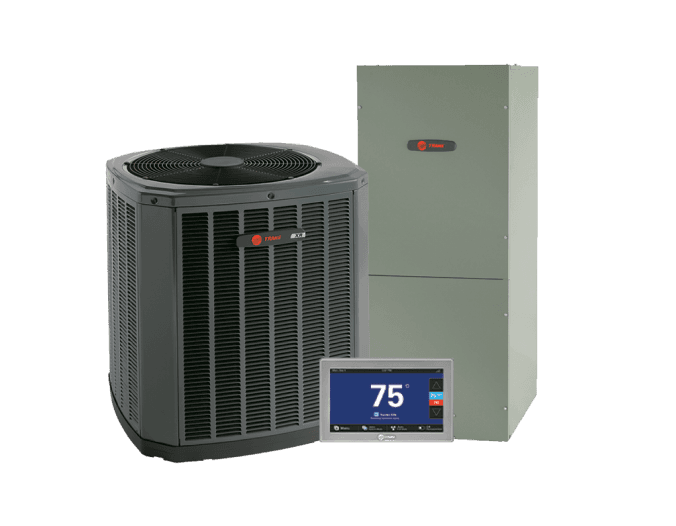
Hybrid Systems
Hybrid systems (also called dual fuel systems) combine heat pumps and gas furnaces to heat and cool your home. They work together to keep you comfortable by only using both systems in their optimal conditions. Your heat pump cools your home and heats it until it gets too cold outside. That’s when the gas furnace kicks in to finish the job.
Heat Pumps vs Furnaces
Discover further advantages of using electric heat instead of a furnace.
| Heat Pumps | Furnaces | |
|---|---|---|
| Ideal Climate | Mild to moderate climates | Moderate to cold climates |
| Energy Efficiency* | Up to 300% energy-efficient | Up to 97.3% energy-efficient |
| Method Used to Generate Heat | Electricity | Gas or oil |
| Lifespan | About 15 years | About 15-20 years |
Explore more heat pump benefits
Heat pumps are flexible, efficient, and green HVAC systems. They’re ideal for homeowners living in mild or moderate climates without extreme winters, but almost anyone can benefit from investing in a heat pump.
 Utilize electricity
Utilize electricity
Electric heat pumps don’t burn fossil fuels to produce heat. Instead, they utilize electricity to generate warmth. That means they don’t produce direct greenhouse gases that could affect the environment and climate.
 Better efficiency, lower costs
Better efficiency, lower costs
Trane heat pumps use less energy than other HVAC systems. Several of our models are ENERGY STAR®-qualified, so they meet the federal government’s strict energy usage guidelines. Saving energy = saving money. Plus, when a system uses less energy, it’s better for the environment.
 Year-round comfort you can count on
Year-round comfort you can count on
Heat pumps have two important jobs: heating and cooling your home. Simply turn on your heating or cooling setting to change how your heat pump is operating and let the system do the rest.
 Air handler compatible
Air handler compatible
Heat pumps pair nicely with air handlers, which help circulate conditioned air throughout your home. While your heat pump’s hard at work heating or cooling air, your air handler makes sure it reaches the rooms where you want it.
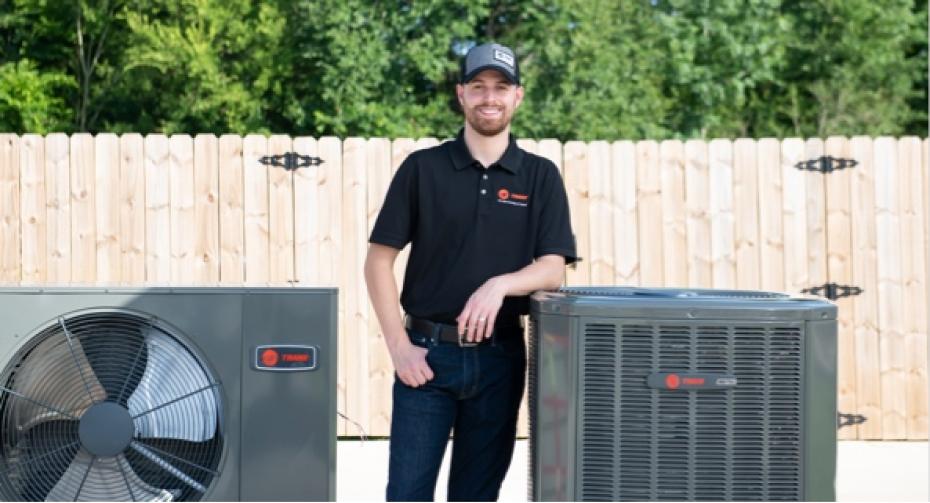
Can Trane heat pumps really cool your home?
Yes! Although one common misconception about heat pumps is that they can only heat, the truth is that heat pumps can both heat and cool your home. Inside the heat pump is the reversing valve, which allows the system to switch the refrigerant flow and perform whichever function is needed.

What makes heat pumps & hybrid systems efficient?
Electric heat pumps and hybrid systems use a minimal amount of energy. The Department of Energy estimates that air-source heat pumps can provide one-and-a-half to three times more heat energy to a home than the electric energy they consume. That's because they take heat from the air outside and move it inside instead of burning natural gas or using electric heat strips to heat your home. That means, both these systems can be more eco-friendly and cost effective.
Why might you consider a hybrid system?
With a hybrid system, you get the best of both HVAC worlds: hot and cool air all year long. In certain conditions, pairing a heat pump with a gas furnace can save you money on your energy costs.
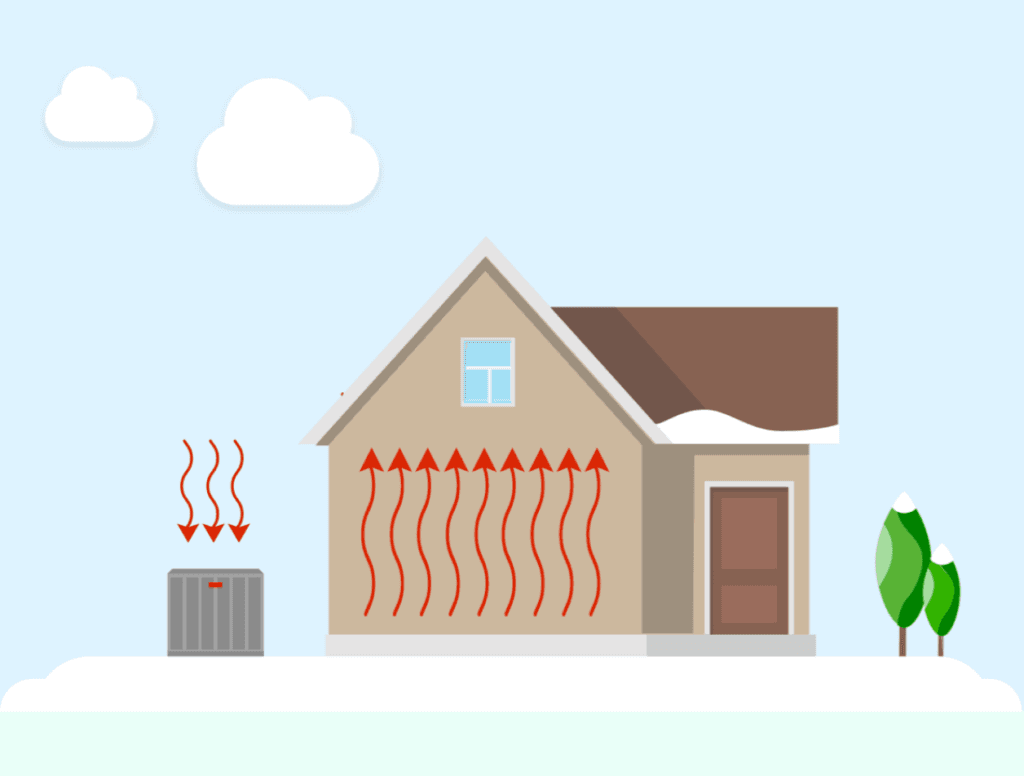
You live in a changing climate
If you live in a changing climate, a hybrid system takes the best qualities of both systems to tackle any conditions you might wake up to. They utilize a heat pump to cool your home during the spring and summer, as well as heat it in mild winter conditions. But, when the temperature drops below freezing, the gas furnace kicks on to warm your home.
You live in a home with a furnace
Your HVAC system may already include a furnace. If you’re happy with it and want the extra heating capability, you’ll want to pair it with a compatible heat pump.
You want to lower your energy costs
Because a hybrid system uses both the heat pump and furnace in their optimal conditions, neither is exerting unnecessary energy when the heat is on. This is good for the environment and your bank account, because you’ll likely save on utility bills.
You care about our planet
Hybrid systems reduce the amount of carbon emissions you’re producing by heating and cooling your home because the furnace doesn't burn as much natural gas as it would wihtout the heat pump. If you want to reduce your carbon footprint, a hybrid system is a great place to start.
Electrification Hub
Various factors can impact the price of a new HVAC system: plan ahead with our guide.
Green Guide
A greener system is good thing for your home, your environment, and your wallet.
Buyer’s Guide
Learn helpful HVAC tips and tricks before you purchase your system.
